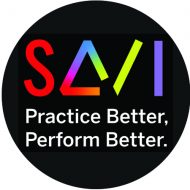A friend who runs a musical theater program at an arts-centric high school wrote to inquire what skills a student graduating from her school’s program ought to be expected to possess. Her question got me thinking: what are the most important learning outcomes to be pursued in a high school musical theater program?
Personally, I think that one part of the answer to this question is a practical one: the student graduating from a high school musical theater program should be able to audition and compete successfully for admission to a college musical theater program. Tis means they need to know about song preparation and performance, dance auditioning, monologue preparation and presentation — in other words, the procedures that are routinely part of the college musical theater audition process. More fundamentally, the student should have an understanding of themselves not only as a performer but as a person, along with ability to present themselves with ease and authenticity in an audition situation.
This isn’t to suggest that getting into college is the be-all and end-all of training for musical theater at high school level. A number of young performers have professional ambitions, and they should be able to compete successfully for age-appropriate roles in a competitive professional environment. But here again, the skills associated with this outcome have to do with the ability to audition: song presentation, monologue presentation, selecting appropriate material for the audition, learning and executing a dance combination, and so forth.
Apart from that, I can think of a few things that would be helpful, though not absolutely indispensable, to a high school graduate with a passion for music theater and a serious interest in pursuing it in the future. These would include:
- an awareness of the diverse nature of the musical theater repertoire, to be acquired through exposure to representative specimen works;
- a rudimentary knowledge of music notation that would enable the students to learn new repertoire quickly and accurately;
- an introduction to voice and speech skills that will help the student shed their most conspicuous regionalisms and present themselves as an individual with intelligence and adaptability.
That’s not a comprehensive list, by any means, but maybe it’s enough to get you thinking – what are the learning outcomes that you think would be most desirable in a high school musical theater program? Please leave your response in the comments area!
